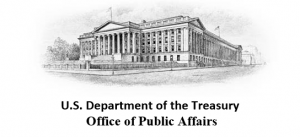Department of Revenue Extends Due Dates for Certain Corporate Income Tax Returns and Payments
TALLAHASSEE, Fla. – Today, Department of Revenue Executive Director Jim Zingale issued an emergency order to extend filing deadlines for certain Florida corporate income tax (CIT) payments and returns. Order of Emergency Waiver/Deviation #20-52-DOR-003 extends the following due dates:
For entities with a fiscal year ending December 31, 2019:
- The May 1, 2020, due date for Florida CIT returns is extended to August 3, 2020.
- The May 1, 2020, due date for Florida CIT payments is extended to June 1, 2020.
- The due date to submit a request for extension of time to file the return and make any tentative payment is extended to June 1, 2020.
For entities with a fiscal year ending January 31, 2020:
- The June 1, 2020, due date for Florida CIT returns is extended to August 3, 2020.
- The June 1, 2020, due date for Florida CIT payments or to submit a request for extension of time to file remains June 1, 2020.
For entities with a fiscal year ending February 29, 2020:
- The July 1, 2020, due date for Florida CIT returns is extended to August 3, 2020.
- The July 1, 2020, due date for Florida CIT payments or to submit a request for extension of time to file remains July 1, 2020.
Florida CIT payments should be based on the corporation’s best estimate of the amount that would be due with the returns.
Although the Internal Revenue Service (IRS) extended the due dates for all federal CIT payments, this emergency order does not change the current due dates for Florida CIT estimated payments due between April 1, 2020 and July 15, 2020.
Florida CIT produces $2.8 billion annually and funds more than 8.2% of Florida’s General Revenue programs. Final Florida CIT returns, including requests for an extension of time to file, and associated payments are normally due on the first day of the fifth month following the close of a corporation’s fiscal year or, for entities with fiscal years ending June 30, the first day of the fourth month following the close of a corporation’s fiscal year.
On March 9, 2020, Governor Ron DeSantis issued Executive Order Number 20-52, declaring a state of emergency in response to the recent COVID-19 outbreak. The Department has implemented the filing date extensions pursuant to subsection 213.055(2), F.S., which authorizes the Executive Director of the Department of Revenue to carry out certain actions during a declared state of emergency.
On Thursday, April 9, 2020, the IRS extended the due dates for federal CIT returns and payments to July 15, 2020.
For taxpayers who have additional questions, the Department has established a dedicated team to address tax-related issues pertaining to COVID-19 and created an email address, [email protected]. Visit the Department’s webpage for COVID-19 updates. For more information or to sign up for email updates from the Department of Revenue, visit floridarevenue.com.
Contact: Bethany Wester, Interim Communications Director
[email protected] | 850.617.8214

